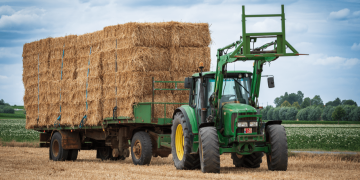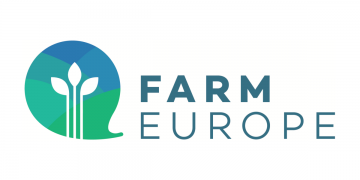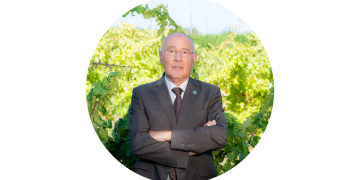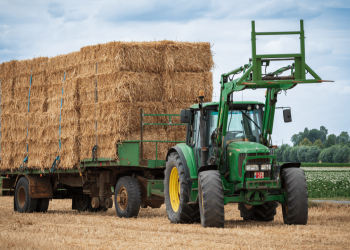In our modern age of biotechnology, new tools are constantly being developed for agricultural improvement. Whether it’s DNA sequencing, plant tissue culture or gene editing, these advances are facilitating the development of better crops.
Genetically modified organisms (GMOs) are one well-known example of agricultural biotechnology. The release of GMO products, starting in the 1990s, was followed by an onslaught of information from varied sources about the relative merits of the technology. A quick search will fill your browser with contrasting viewpoints about GMOs from sources with varying levels of credibility.
Newer to the agricultural biotechnology space is gene editing, often known as CRISRPR/Cas. It’s adding yet another term and even more complexity to a field already brimming with misperceptions and misinformation.
As these technologies become more widespread, so too does the necessity of understanding the differences among these tools so that decisions can be informed by truth instead of manipulated by fear. This piece is intended to provide some clarification about the differences and similarities between GMOs and gene editing.
What is a GMO? This acronym for genetically modified organisms was developed by opponents of the technology and has become a household term. It is typically used to describe any organism that possesses a novel combination of genetic material achieved through modern biotechnological approaches. These are known as transgenics.
An example of a widely grown GMO is Bt cotton — a cotton variety that has been designed to contain a gene from a soil organism that provides inherent resistance to the bollworm and other insect pests. This genetic pest control mechanism can reduce pesticide applications and improve yields. Though just 10 GMO crops are grown commercially, GMOs are found in much of the Western food supply due to ingredients derived from GM corn, soybeans and sugar beets. Other GMO crops approved for sale include potato, summer squash, papaya, apples, canola, cotton and alfalfa.
Genetically modified organisms can leverage the genetics of other organisms to improve desired traits. In the case of Golden Rice, a gene from daffodil and another gene from a soil bacterium were inserted into the rice genome to produce beta carotene, which is converted into the essential nutrient vitamin A. Golden Rice is intended to reduce vitamin A deficiency among some of the poorest people in nations like the Philippines, where rice is a staple food.
In research contexts there are many examples of GMOs representing a diversity of plants and traits. However, the translation of this technology to commercial or applied settings has reached a bottleneck due to a stringent and extremely expensive regulatory process. Typically, only wealthy, private-sector corporations can afford to participate in the commercialization of GMOs and they have chosen to focus on lucrative commodity crops.
This bottleneck could be eased by gene editing, which has recently come on the scene as an important mechanism for crop improvement. The discovery and application of CRISPR/Cas9 for agricultural improvement has been effective at generating novel varieties in myriad crops across many traits. Gene editing tools are used to generate changes to the native genetic material. Unlike GMOs, which introduce novel configurations of genetic materials typically derived from other organisms, gene editing methods modify existing genetic material in ways that can yield beneficial outcomes.
Multiple tools exist to facilitate gene editing but CRISPR/Cas is by far the most commonly used. As a result, the term CRISPR is sometimes used interchangeably with gene editing. To date, gene editing has been applied to a large variety of plants and animals, including fruits, vegetables, wine grapes, fish, rice and other popular foods. Some of these gene-edited products are now on the market.
Regulatory frameworks governing gene editing are nascent and generally much less prohibitive relative to regulation of GMOs. Legislation regarding gene editing is emerging globally and trending towards allowing gene-edited products to pass from research to production with relative ease, compared to GMOs. A favorable regulatory environment may facilitate the emergence of gene-edited products generated by public sector institutions, reversing the private-sector dominance of GMOs.
Both GMOs and gene editing offer powerful tools for increasing crop yields, adapting to climate change, enhancing the nutritional qualities of foods, improving animal welfare and developing products with many other important traits.
Where GMOs are able to draw on the diversity of all living organisms to extract beneficial genetic material, varieties produced using gene editing are limited to changing the standing genetic material in ways that could be beneficial. It is noteworthy that gene editing tools can be used to produce GMOs. In this case, novel configurations of genetic material can be precisely inserted into the genomes of organisms by using gene editing machinery. These gene-edited GMO products typically would be regulated as a GMO.
Though GMOs and gene-edited organisms are imbued with technological benefits and drawbacks, they do provide potent mechanisms to develop next-generation crop and animal varieties to address current and future demands on global food systems.
By Nicholas Karavolias
O artigo foi publicado originalmente em Cornell Alliance for Science.






















































